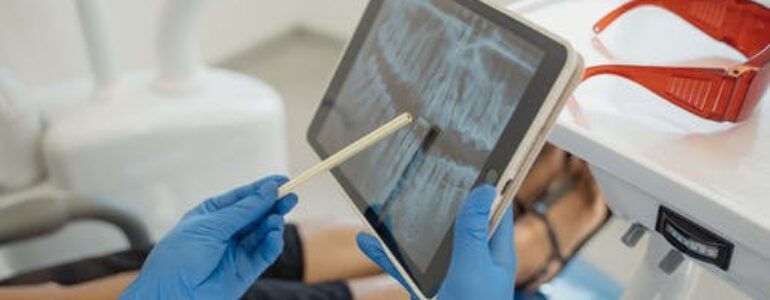As a parent, you strive to ensure the well-being of your child, which includes their dental health. Recognizing the subtle and not-so-subtle indicators that your child may require dental attention is critical for maintaining their overall health.
Dental care in children should start early to create a foundation for good oral hygiene habits that will last a lifetime. But how do you discern the signs that your child needs to see a dentist? Let’s delve into the telltale signs and understand what they mean for your child’s dental health.
Indications That Your Child Needs Dental Care
Persistent Bad Breath
When your child persistently has bad breath, it might not just be the result of that onion-laden meal. If you notice that the odors persist even after thorough brushing and mouthwash use, this could indicate underlying dental issues such as cavities, gum disease, or gastrointestinal problems. A dental visit will be necessary to determine and address the exact cause.
Toothache and Sensitivity
Complaints of toothache or tooth sensitivity to hot, cold, or sweet foods should never be ignored. Such symptoms could point to tooth decay or an infection that needs treatment as soon as possible to prevent more invasive procedures like root canals or extractions.
When seeking dental care for your child, consider professionals who specialize in Manatee dentistry. This service caters specifically to the pediatric population, offering tailored treatments and a comfortable atmosphere suitable for children. Their expertise in handling young patients can make a significant difference in your child’s perception of dental health and hygiene.
Bleeding Gums
While brushing or flossing, if your child’s gums regularly bleed, it could be an early sign of gingivitis, a mild form of gum disease. If not treated, it can progress to more serious forms of periodontal disease, which can affect the health of their adult teeth later on.
Difficulty Chewing or Biting
Children should be able to bite and chew with ease. When your child exhibits discomfort or pain during these activities, it may indicate misaligned teeth or an issue with their jaw. Early interventions can rectify such problems before they become more severe.
Thumb Sucking Past Toddler Age
It’s natural for infants and toddlers to suck their thumbs as a means of self-soothing. However, if this habit persists past the age of four, it can affect the alignment of their permanent teeth and the shape of their mouth. A dentist can help offer solutions to deter this habit and protect your child’s oral development.
Visible Plaque Build-up and Tartar
-
Spots or streaks of white or yellow on the teeth could suggest plaque build-up.
-
Tartar may manifest as hardened, discolored deposits, especially at the base of the teeth near the gum line.
These are clear indicators that professional cleaning is necessary to prevent decay and gum disease. Just brushing at home might not be enough to remove these substances once they’ve formed.
Changes in the Mouth
-
Unusual spots or sores that don’t heal.
-
A sudden change in the way their teeth fit together when they bite down.
Any alteration in the state of your child’s mouth could be the reason for concern. It’s advisable to consult with a dentist to rule out any serious conditions and to get timely treatment.
Regular Check-ups and Preventive Care
Regardless of the presence of symptoms, regular dental check-ups are essential for children. These appointments serve as preventive measures and help spot any potential issues early on. During a routine exam, a dentist evaluates the overall health of the mouth, cleans the teeth, applies fluoride treatments, and makes recommendations for proper home care.
Dental Development and Orthodontic Evaluation
As your child’s mouth develops, signs such as misaligned or crowded teeth could suggest the need for an orthodontic evaluation. Early assessments can help guide the growth of the jaw and the proper spacing of teeth to prevent complex issues later on. Moreover, addressing orthodontic problems during childhood can lead to shorter treatment times and better outcomes.
For those residing in specific locales, finding a local dentist specialized in pediatric care, like a pediatric dentist in Bradenton, can be incredibly beneficial. Proximity matters when it comes to regular check-ups or emergency visits, and a dentist close to home can be an advantage in ensuring your child receives timely and consistent dental care.
Oral Hygiene Education
It’s essential to teach in children the importance of good oral hygiene practices like proper brushing and flossing techniques. Education on these topics regularly at dental visits reinforces these habits and the necessity of maintaining daily dental care routines.
Emergency Dental Situations
In the event of a dental emergency, such as a knocked-out tooth or an injury to the mouth, immediate dental attention is necessary. Knowing how to handle these situations while promptly accessing professional care can prevent further complications and save your child’s teeth.
Finding the Right Pediatric Dentist
Finding a pediatric dentist whom you trust and your child feels at ease is fundamental. Pediatric dentists undergo additional training to cater to the complex dental needs and developmental stages of children. They are equipped not only with the expertise to treat young mouths but also the soft skills to make dental visits less intimidating for kids.
If you’re looking for a dental practice that caters to young ones, consider options such as childrens dentistry of Lakewood Ranch. Practices with a focus on pediatric dental care are dedicated to creating an environment where children can receive top-notch dental services while feeling secure and at ease.
Wrapping Up
Understanding the various signs that your child may require dental care is an integral part of parenting. Brushing aside any of the points discussed might lead to more serious, painful, and potentially costly dental issues in the future.
Take charge of your child’s oral health by scheduling routine check-ups, paying attention to onsets of discomfort or abnormal behaviors, and knowing where to get specialized pediatric dental care. Remember, a healthy smile starts with thorough and attentive care right from the start.









